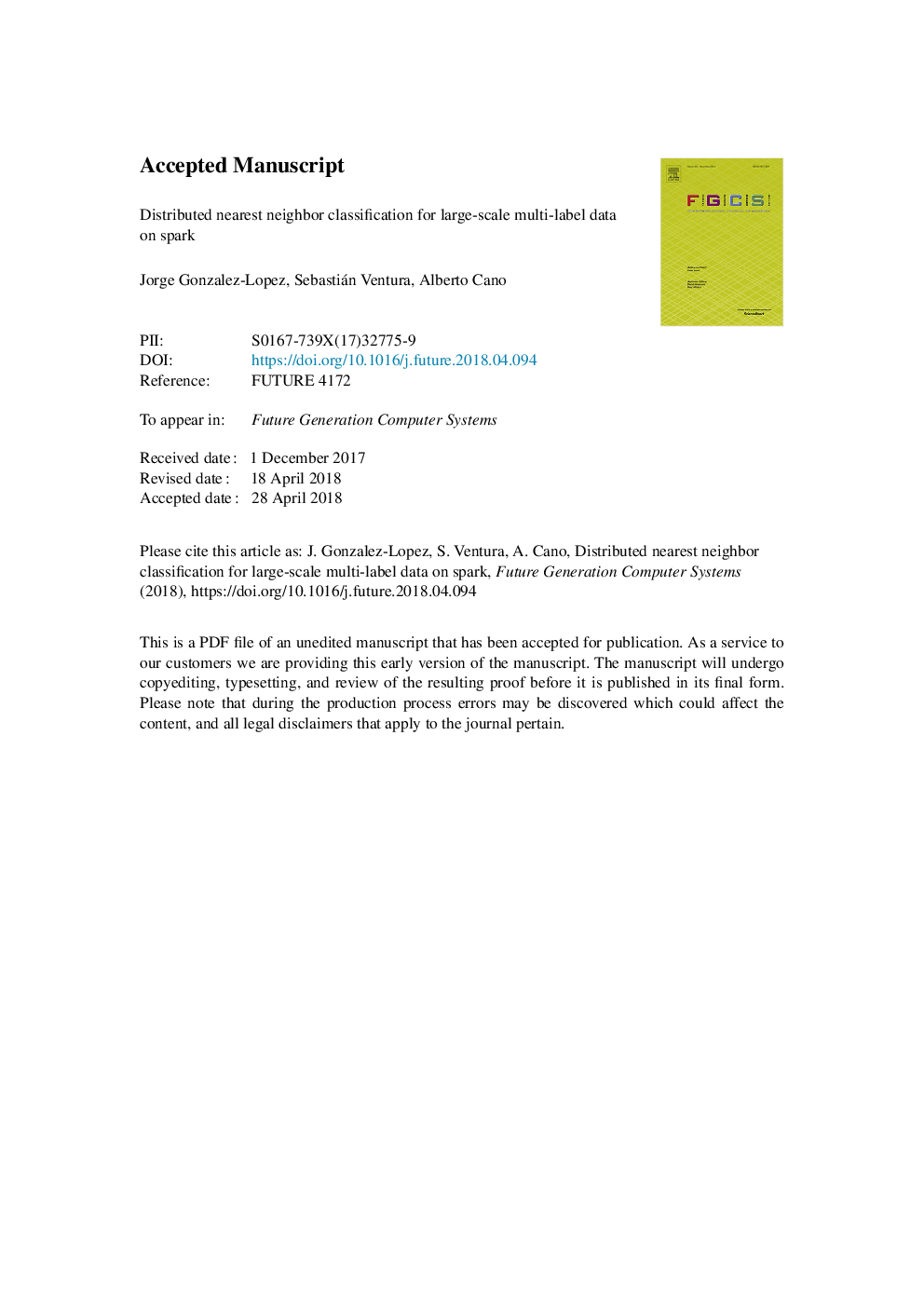| Article ID | Journal | Published Year | Pages | File Type |
|---|---|---|---|---|
| 6872902 | Future Generation Computer Systems | 2018 | 49 Pages |
Abstract
Modern data is characterized by its ever-increasing volume and complexity, particularly when data instances belong to many categories simultaneously. This learning paradigm is known as multi-label classification and one of its most renowned methods is the multi-label k nearest neighbor ( Ml-knn). The traditional implementations of this method are not feasible for large-scale multi-label data due to its complexity and memory restrictions. We propose a distributed Ml-knn implementation based on the MapReduce programming model, implemented on Apache Spark. We compare three strategies for distributed nearest neighbor search: 1) iteratively broadcasting instances, 2) using a distributed tree-based index structure, and 3) building hash tables to group instances. The experimental study evaluates the trade-off between the quality of the predictions and runtimes on 22 benchmark datasets, and compares the scalability using different sizes of data. The results indicate that the tree-based index strategy outperforms the other approaches, having a speedup of up to 266x for the largest dataset, while achieving an accuracy equivalent to the exact methods. This strategy enables Ml-knn to scale efficiently with respect to the size of the problem.
Keywords
Related Topics
Physical Sciences and Engineering
Computer Science
Computational Theory and Mathematics
Authors
Jorge Gonzalez-Lopez, Sebastián Ventura, Alberto Cano,
